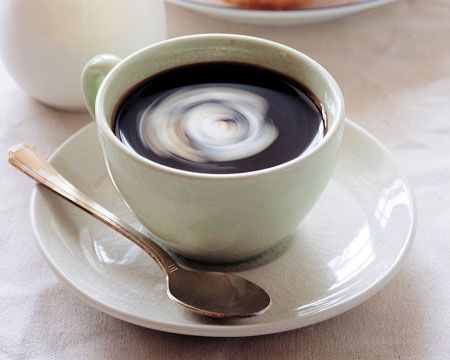It is unreliable to lose weight by drinking coffee. Pay attention to a few key points of healthy coffee drinking.
It is reported that some consumers have palpitation, palpitation, nausea and other reactions after drinking "slimming coffee". Finally, they faint after nausea, vomiting and other symptoms, and finally leave due to sudden death. Family members are skeptical about the efficacy and side effects of "weight loss coffee", but in fact, there are still many women who think coffee can lose weight, and may even drink too much coffee every day. From a nutritional point of view, coffee contains a variety of active substances, which has many merits for human health, but coffee itself is not flawless. If you want to drink coffee healthily, you should also pay attention to several points of healthy coffee drinking.

Can coffee really reduce weight?
Many people superstitious coffee weight loss effect, there will be more people want to ask: "coffee really have weight loss effect?" In fact, the correct understanding of this sentence should be "drinking coffee helps to lose weight" rather than "drinking coffee can lose weight", after all, weight loss is a process of balancing energy intake and energy consumption, this process involves physiological characteristics, exercise methods, diet structure and many other elements, and not a cup of coffee can be simply solved. Therefore, the idea that drinking coffee can reduce weight is a misunderstanding of coffee cognition.
So, what about coffee helping to lose weight? Suzuki Masato of Tokyo Cihui Medical University found in experiments that people who jogged for 30 minutes after drinking coffee spent more energy than those who jogged for 30 minutes after drinking boiled water. He believed that caffeine in coffee could stimulate sympathetic nerves and promote the energy release of free fatty acids in the blood, thus consuming more energy. During aerobic exercise, fat is usually the main source of energy, and caffeine can promote fat burning efficiency. In addition, in mice experiments, caffeine combined with exercise reduced internal fat by 60%. In other words, exercise after drinking coffee can burn fat better than exercise alone, so it helps to lose weight.
Coffee can cause insomnia.
Due to the caffeine contained in coffee, caffeine does not actually relieve fatigue, but only makes the brain feel tired. When people feel tired because of exercise or mental work, adenosine will gradually accumulate in the brain as a product of energy metabolism, causing fatigue. If you drink coffee at this time, caffeine will replace adenosine in the brain attached to adenosine receptors, so that people do not feel tired, and thus prevent drowsiness. However, for some people who are sensitive to caffeine, caffeine may cause excitation of the nerve center, so that the sympathetic nerve is always in an excited state. When the parasympathetic nerve cannot be activated and play its function, it is difficult for people to enter the sleep state, thus causing insomnia problems. For people who are sensitive to caffeine, it is not advisable to drink coffee in the afternoon, and it is not advisable to drink caffeinated drinks such as tea.
Drink coffee and watch out for dehydration
Caffeine in addition to the characteristics of nerve stimulation, it also has a strong diuretic function, after drinking coffee, people will feel like drinking as frequently as running to the toilet, which is actually the result of caffeine diuretic function. When people urinate frequently and cannot fully replenish water, people are prone to dehydration, and various symptoms caused by lack of water in the body should be paid enough attention to. When drinking coffee, you should pay attention to supplementing boiled water. You can also judge whether you are short of water by observing the color of your urine. If the urine is dark yellow, it means that the human body is in a dehydrated state. At this time, you should not continue to drink coffee, but should supplement boiled water. In addition, it is important to note that caffeine stimulates excessive secretion of stomach acid, so people with excessive stomach acid should drink less coffee, and be careful not to drink coffee on an empty stomach.
Coffee should be avoided if you drink coffee.
Caffeine has a medical effect. If the concentration of caffeine in the blood rises sharply, it may stimulate the central nervous system, causing dizziness, rapid heartbeat, excitement, restlessness and other mental symptoms. If the concentration of caffeine in the blood exceeds 40 μ g/ml, no matter who the person is, arrhythmia, convulsions and other symptoms may occur. Women who drink six or more cups of coffee a day are reported to have a 2.5-fold higher risk of myocardial infarction, and mortality is higher in areas of Finland where coffee consumption is high, but large prospective studies have not proved that coffee is an independent cause of death from coronary heart disease. Although some people had a slight increase in blood pressure one hour after taking 250mg of caffeine, a large number of studies did not find any relationship between coffee consumption and blood pressure. Caffeine can shorten the effective refractory period of atrioventricular node, thus causing various tachyarrhythmia and premature beat. Paroxysmal atrial tachycardia occurred in 1 case after taking coffee. That is to say, for some people who are sensitive to caffeine, there is a correlation between caffeine intake and heart health, such as the reported sudden death of women drinking coffee, or because of caffeine sensitivity, resulting in palpitations, palpitations, dizziness and other symptoms, and may even induce sudden cardiac death. Therefore, if you feel flustered, palpitations, dizziness, etc. after drinking coffee, you should reduce or avoid caffeine intake.
Important Notice :
前街咖啡 FrontStreet Coffee has moved to new addredd:
FrontStreet Coffee Address: 315,Donghua East Road,GuangZhou
Tel:020 38364473
- Prev

Seven facts about caffeine, seven things you don't know about caffeine.
Coffee is a common drink. However, as an important ingredient in coffee, how much do you know about caffeine? The American magazine Women's Health recently published an article about 7 things you don't know about caffeine. 1. Caffeine is good for both short-term and long-term memory. Early studies have found that caffeine is good for short-term memory, while recent studies have found that caffeine is also good for long-term memory
- Next

To help you see the common sense of red and black coffee.
Now more and more young people like coffee and include it as part of their lifestyle: such as getting tired when they are thirsty, refreshing themselves by drinking coffee, or having a coffee shop on weekends and making a petty bourgeoisie. Recently, a "Why do foreigners drink coffee every day?" The "amazing secret you don't know" post, illustrated and illustrated, is going viral in Wechat moments, from coffee is good for the skin to drinking coffee.
Related
- Beginners will see the "Coffee pull flower" guide!
- What is the difference between ice blog purified milk and ordinary milk coffee?
- Why is the Philippines the largest producer of crops in Liberia?
- For coffee extraction, should the fine powder be retained?
- How does extracted espresso fill pressed powder? How much strength does it take to press the powder?
- How to make jasmine cold extract coffee? Is the jasmine + latte good?
- Will this little toy really make the coffee taste better? How does Lily Drip affect coffee extraction?
- Will the action of slapping the filter cup also affect coffee extraction?
- What's the difference between powder-to-water ratio and powder-to-liquid ratio?
- What is the Ethiopian local species? What does it have to do with Heirloom native species?

